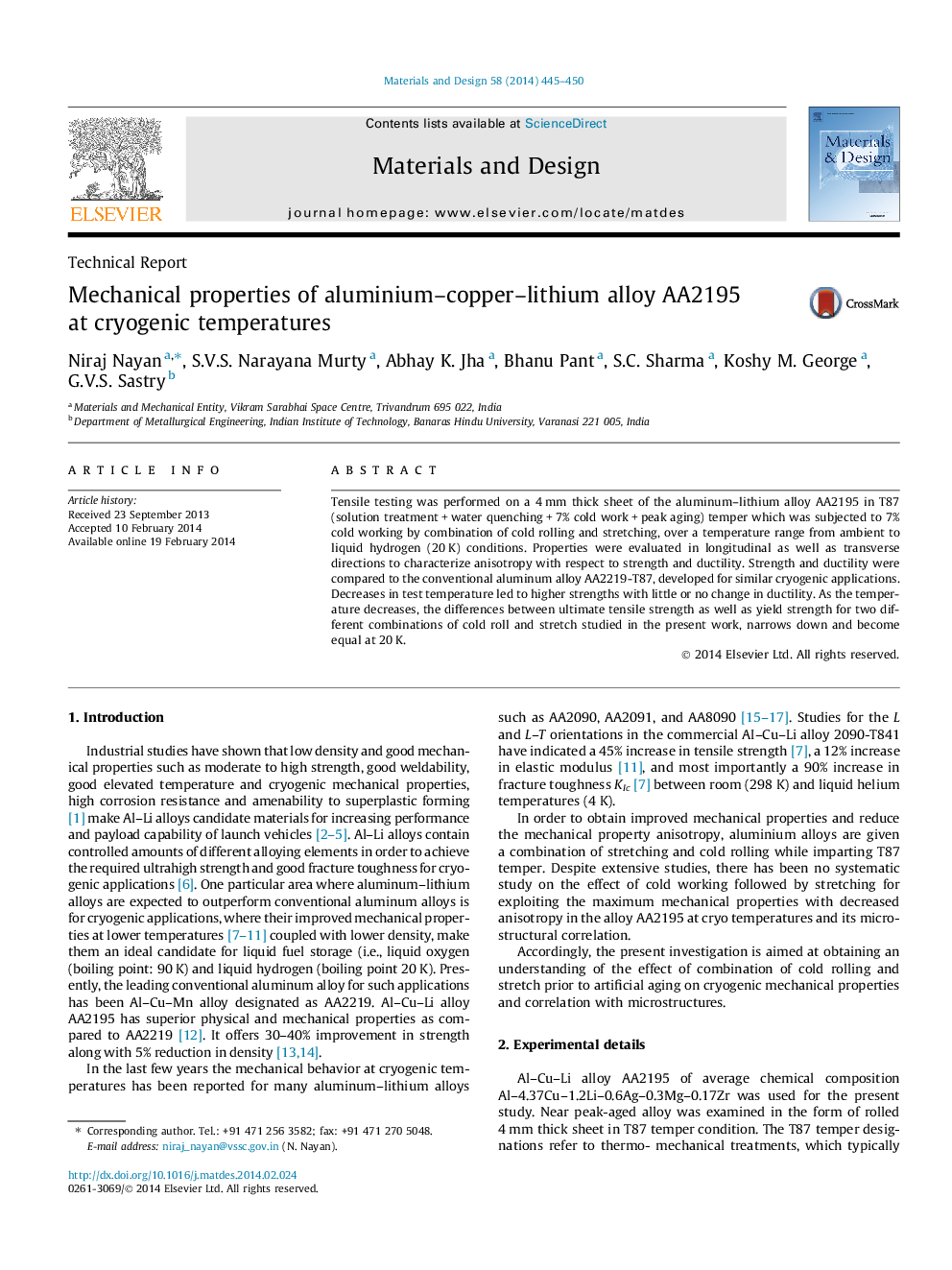| Article ID | Journal | Published Year | Pages | File Type |
|---|---|---|---|---|
| 829297 | Materials & Design (1980-2015) | 2014 | 6 Pages |
•4 mm thick sheet of AA2195 was imparted T87 temper.•7% cold work to impart T87 was given by combination of cold rolling and stretching.•Mechanical properties were evaluated at RT and cryogenic temperatures.•Strength of AA2195 are superior to the conventional aluminum alloy 2219 at all temperatures.•Strength decreases with decrease in temperature whereas ductility remains unchanged.
Tensile testing was performed on a 4 mm thick sheet of the aluminum–lithium alloy AA2195 in T87 (solution treatment + water quenching + 7% cold work + peak aging) temper which was subjected to 7% cold working by combination of cold rolling and stretching, over a temperature range from ambient to liquid hydrogen (20 K) conditions. Properties were evaluated in longitudinal as well as transverse directions to characterize anisotropy with respect to strength and ductility. Strength and ductility were compared to the conventional aluminum alloy AA2219-T87, developed for similar cryogenic applications. Decreases in test temperature led to higher strengths with little or no change in ductility. As the temperature decreases, the differences between ultimate tensile strength as well as yield strength for two different combinations of cold roll and stretch studied in the present work, narrows down and become equal at 20 K.
